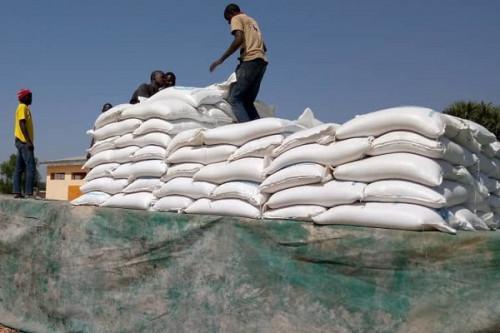
Cameroon could reduce dependence on imports by 32% in 2043

(Business in Cameroon) - Cameroon could reduce its dependence on food imports (rice, wheat, fish, malt, and beet sugar...) by 31.7% by 2043, a recent ISSA Africa report found.
The organization expects this decline to come from sharp progress in the agricultural sector to the extent that, by 2043, the country's net agricultural import will represent 2.8% of total agricultural demand. This is well below the projected average of 36.8% for lower-middle-income countries in Africa and suggesting “that in terms of food sufficiency, Cameroon would have outperformed its income peers on the continent,” the report says.
Under this scenario, extreme poverty in the country is forecasted to decline to 11.2 million people (24.1% of the population) by 2043. This is 6.1 percentage points lower than the current path forecast for the same year and 14.2 percentage points lower than the average for lower middle-income countries in Africa. “It also means that the Agriculture scenario could lift 2.9 million more Cameroonians out of extreme poverty by 2043. With the majority of poor citizens especially in the rural areas of Cameroon heavily dependent on agriculture for livelihood, it is not surprising that the Agriculture scenario has such a huge impact on poverty reduction in the country,” the document reads.
Higher yields
The South African think tank suggests that the Cameroonian government put in place a policy of reasonable but ambitious increases in yields per hectare (reflecting better management and seed and fertilizer technology), increased irrigated land, and reduced losses and waste. “By 2043, the Agriculture scenario forecast will lead to an increase in yield per hectare of 8.1 tons, which will be 2.3 tons higher than the Current Path estimate of 5.8 tons per hectare. The projections in the Agriculture scenario will be higher than the 6.1 tons projected average for lower middle-income African countries,” according to the report.
For now, FMCGs such as rice, frozen fish, and wheat (to produce flour) are mostly imported and exempt from customs duties. These incentives cost the Treasury CFA52 billion, CFA58 billion, and CFA30 billion respectively each year. However, the government is already working to suspend exemptions on imports of goods that can be produced locally, starting in 2023.
As part of the 2023 Finance Law preparation, President Paul Biya prescribed “the abolition of exemptions on imports of products that are already manufactured locally or having local substitutes, as well as those affecting the development of certain sectors, to encourage their local production and competitiveness.”
Written by S.A.
Translated from French by Firmine AIZAN
Mags frontpage
- Most read 7 days
- shared 1 month
- read 1 month






























